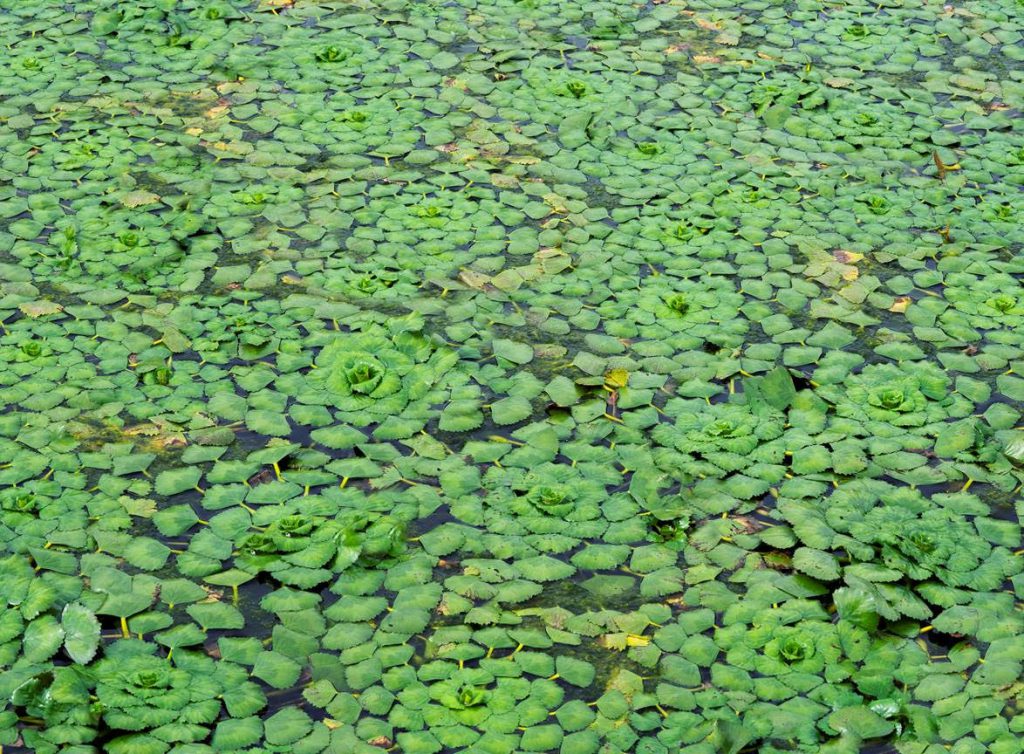
They may look like Lily Pads, but they are not! The aquatic plant known as Trapa natans has the unfortunate common name of water chestnut, leading people who are first hearing about it to think that it may well be a bonus source of that good appetizer, with a strip of bacon wrapped around it.
But the reality is, this non-native species is an aggressive rooted aquatic plant with floating leaf rosettes and a central submerged cord that can extend up to 16 feet, enabling it to form a dense mat on the water’s surface. By July, plants produce a whorl of seeds (nuts) below the water’s surface that detach and sink once mature. Seeds have been shown to remain viable for up to twelve years, underscoring the threat of long-term establishment once this plant takes hold.
This invasive species has gradually been moving down the Connecticut River from several large concentrations in Massachusetts. In 2011 …
